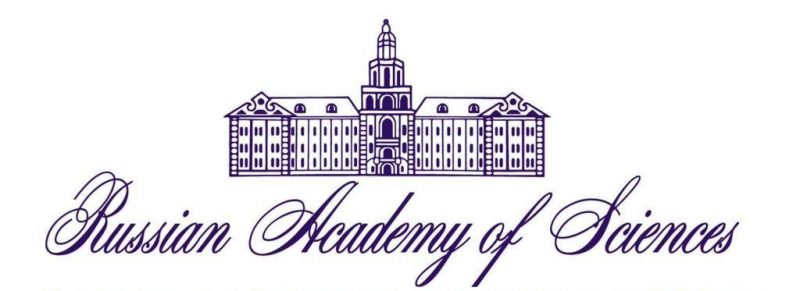Andrey Ivashchenko took part in the session of the Medicinal Chemistry Scientific Council of the Russian Academy of Sciences.
On May 23, a meeting of the Medicinal Chemistry Scientific Council of the Russian Academy of Sciences was held at the Presidium of the Russian Academy of Sciences, chaired by Academician. S.O. Bachurin, where a number of issues related to the development of research in the field of drug development in academic and university centers of Russia were discussed. At the invitation of the Chairman of the Council, the meeting was attended by the head of the ChemRar group of companies, Doctor of Technical Sciences, Professor of the Russian Academy of Sciences A.A. Ivashchenko.

Characterizing the current state of innovative development in the Russian pharmaceutical industry, A.A. Ivashchenko noted that the Pharma-2020 Strategy was successfully implemented in terms of creating new pharmaceutical production, but was significantly underfulfilled in terms of developing innovative products. The inconsistency of government support measures associated with underestimating the timing and risks of the full cycle of development of innovative medicines, unfortunately, led to a halt in the innovation part of the strategy. Unfortunately, the draft Pharma-2030 Strategy largely continues the trend of the state underestimating the need to develop innovations in the field of pharmaceuticals. What is overlooked, for example, is the fact that at an extremely tense moment associated with the development of the COVID-19 epidemic, the situation was kept under control thanks to the efforts of scientific and industrial organizations (for example, the Gamaleya Research Institute, JSC Generium, ChemRar Group, Biocad and others), who took an active part in the Pharma-2020 events and, as a result, accumulated the necessary intellectual, personnel and resource potential.
The current situation in the field of drug supply and technological sovereignty is characterized by high uncertainty, considerable risks, but also new opportunities. It should be noted, in particular, that in 2022, the largest foreign pharmaceutical manufacturers from unfriendly states actually stopped conducting clinical trials of their latest generation innovative medicines in the Russian Federation. The obvious consequence of this is that after about 5 years these drugs will not be available in Russia. Given the continued high dependence of the domestic pharmaceutical market on foreign products, especially in the innovative segment, there are other risks to the drug safety of our country.
Under these conditions, according to A.A. Ivashchenko, the issue of organizing a full cycle of development, production and introduction of innovative medicines in the Russian Federation is extremely relevant. A set of measures should be implemented related to all key elements of this complex process — scientific, production and technological, educational, regulatory, etc. There is no doubt about the key role that the Russian Academy of Sciences can play in this process.
As one of the serious resources, the speaker noted the possibility of starting the systematic development in our country of improved patentable analogues of foreign innovative medicines, especially those located in the zone of geopolitical risks. We are talking about next-in-class type drugs . Such an industrial strategy is the most cost-effective and is widely used throughout the world, including in leading technologically developed regions (for example, the USA, EU, Japan, etc.). Approximately 80-90% of all small molecule drugs launched annually into the markets of even leading countries are “next in class” drugs. An important point is that the process of developing drugs of this type lends itself well to technologization and can be implemented on the basis of Russian universities within the framework of design and educational approaches. With the support of the ChemRar group of companies, projects of this kind have already been initiated at the moment in a number of Russian universities, in particular, at MIPT, SamSMU , Sirius University and others.
Report by A.A. Ivashchenko aroused the serious attention of the Council members and initiated an in-depth discussion. According to a number of Council participants, the questions and specific proposals raised by the speaker can form the basis of promising directions for the development of medicinal chemistry and drug development in the Russian Federation.
About the Scientific Council for Medical Chemistry of the Russian Academy of Sciences .
The Scientific Council «Medical Chemistry» is the main scientific advisory body of the Russian Academy of Sciences in the field of medicinal chemistry. Among the main functions of the Council is analysis of the state and development trends of domestic and world science in the field of medicinal chemistry; preparation of recommendations based on the results of the analysis for the Russian Academy of Sciences and for government bodies; development of tasks and forecasts for the main directions of fundamental research in the field of medicinal chemistry; drawing up coordination plans and scientific programs; coordination of work in these areas carried out in state scientific organizations; other. The Scientific Council consists of 20 academicians of the Russian Academy of Sciences, 12 corresponding members of the Russian Academy of Sciences, 7 professors (including 2 professors of the Russian Academy of Sciences) and doctors of science. The Chairman of the Council is one of the leading Russian and world scientists in the field of medicinal chemistry, Acad. S.O. Bachurin (Federal Research Center for Problems of Chemical Physics and Medical Chemistry RAS, Chernogolovka).